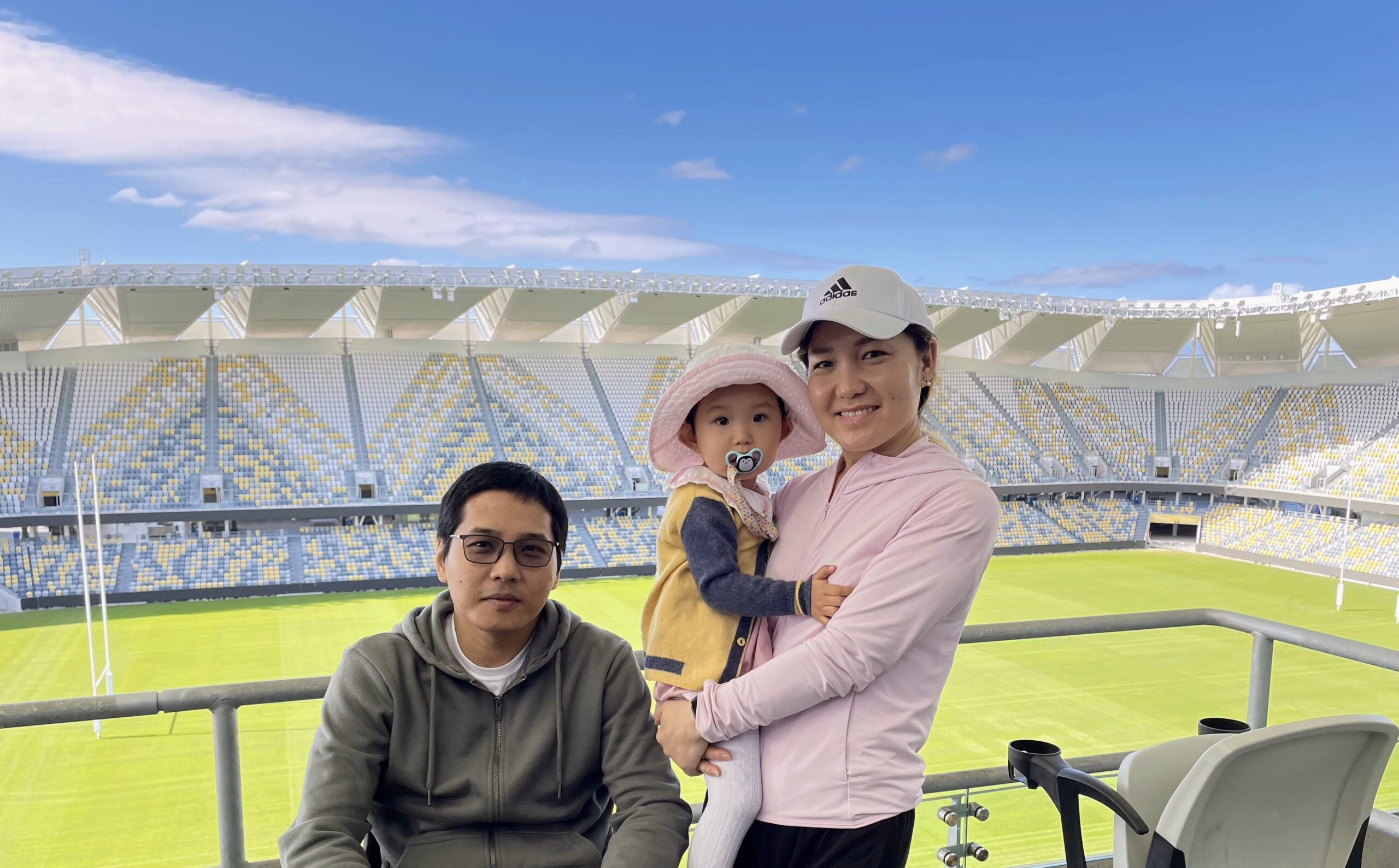My Australian life: Battulga Ganbaatar from Mongolia
Posted: 30 November 2022
One of the goals of the Australia Awards – South Asia & Mongolia’s Alumni Disability Advisory Group is to promote Australia Awards opportunities to people with disability. To support this goal ahead of International Day of Persons with Disability, Mongolia’s Usukhbayar Sainjargal, one of the Alumni Disability Advisory Group members, interviewed her compatriot and fellow wheelchair user, Battulga Ganbaatar, helping him to share his experience as a current Australia Awards scholar.
Battulga commenced his Master of Business Administration at James Cook University, Queensland, in May 2022. As a person with disability, Battulga is looking forward to applying his Australian education to benefit both his home country and other people with disability.
What made you apply for an Australia Awards Scholarship?
I want to contribute to the development of the travel industry in Mongolia by introducing new approaches that offer barrier-free travel for local and international travellers with disability. While I couldn’t find a course that specifically addresses my cause, I am happy with my choice to pursue business administration. As a field of study, it covers a broad range of topics affiliated with almost all industries. I believe I can complete my objectives through the valuable skills and knowledge, especially related to project management, that I am acquiring in Australia.
Can you share your experience on how your university has supported you and other students with disability to adjust to university life?
James Cook University’s Bebegu Yumba campus in Townsville is a fully accessible campus for students with disability. I have no issues accessing any colleges, faculties or other facilities around the campus because all facilities have been adjusted for the needs of people with disability. The university staff are friendly and ready to help students at any time. Also, the ‘AccessAbility’ department at the university caters to any issues that students with disability face. For example, I am currently experiencing an issue with my wheelchair’s backrest functionality that can reduce my ability to attend classes. However, I have contacted my school’s Disability Support Agent and an International Student Adviser, and they have put together an action plan that is suitable for my needs. They have also offered me the option of attending classes online until my wheelchair is fixed.
What are some of the advantages you see, as a person with disability, in being an Australia Awards scholar?
Firstly, I would say the Australia Awards Scholarship is one of the best scholarship programs, offering tremendous opportunities to earn an internationally recognised education and explore Australia—including its culture, society and environment. Secondly, as a student with disability, there are many advantages to living and studying here. For instance, although Townsville is a small city with only around 200,000 residents, I have never faced inaccessibility in terms of infrastructure. (However, I have observed that the public transport schedule is not reliable, even though there is no problem with the buses’ accessibility.) Thirdly, Australia Awards is dedicated to supporting each student to complete their study successfully; therefore, all staff members are proactive in resolving any problems scholars face. Finally, an Australia Awards Scholarship is a golden opportunity for candidates from different backgrounds and experiences to get a world class education. The program is eager to support minority groups, such as people with disability and people from rural areas.

Battulga with his family in Australia
What are some of the challenges you have faced in being an Australia Awards scholar with disability?
There are no significant challenges for me, although I have encountered some minor challenges with social aspects. The biggest challenge could be the cultural shock, because everything here is different from Mongolia. For example, my rent must be paid weekly here; weather is so different (it’s always humid and sunny); and food, culture and social relationships between people here are so different compared to Mongolia.
When you return to Mongolia after completing your studies, what is the key message you would like to share based on your experience and business administration studies in Australia?
As I mentioned, business administration is a vast subject and can relate to almost every sector. Therefore, I believe I can use my knowledge and experience in many ways, such as contributing to the development of the travel industry. Although tourists with disability are considered a niche market segment, determining the travel industry’s potential profit from fully accessible tourism and hospitality services is crucial. It could be a highly beneficial and valuable contribution to the travel industry. There are also numerous other advantages to developing barrier-free tourism for tourists with disability. For example, creating fully accessible infrastructure for travel could allow greater social inclusion of people with impairments.
What is your message on International Day of Persons with Disabilities?
As humans, regardless of whether we have a disability or not, we all should try hard to achieve our goals. The International Day of Persons with Disabilities is not a holiday. It is a day for not only analysing our past and predicting our future but also delivering our message to build a more inclusive and human-centred design for society. The rights of people with disability are equal to the rights of others. It is not a privilege. However, many vulnerable people suffer due to inaccessible infrastructure, social stigma, discrimination, unemployment, and lack of information and knowledge about people with disability. To reduce these negative factors, we all must try our best and raise our voices to build a more inclusive and friendly society for all.
Nothing will change or improve without our involvement. Therefore, we should actively request and require the authorities to ensure equal human rights for people with disability.
*Australia Awards has received parent/guardian consent for a child to be featured in the story.